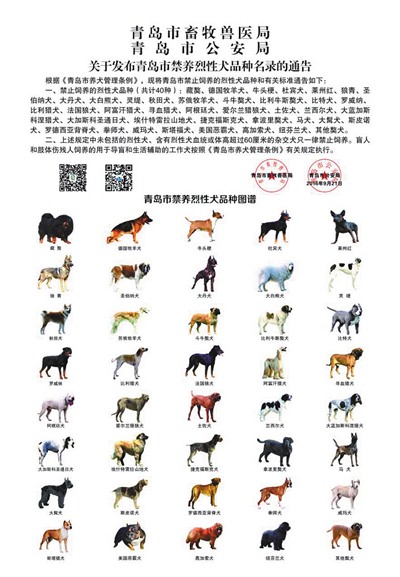China’s controversial one-child policy began to officially phase out two years ago, but a city in the eastern Chinese province of Shandong is now known for its extreme regulations over dog ownership. Starting this week, residents of Quindao face serious consequences if they’re caught with more than one dog in their household. This one-dog policy was introduced as a way to raise awareness about responsible dog ownership and to reduce the number of dog attacks. Officials have reported that families that already have more than one dog will be able to keep them, but not everyone is on board with the new law.
As part of the new regulations, dog owners are required to pay for registration and official dog tags. If a dog is caught outside without the tags, the owners risks being fined. If a household is found to have more than one dog, they’ll be issued a bigger fine of 2,000 yuan ($294), and the dog could be confiscated.

The new law limits the number of dogs in a home, and it also goes on to completely ban 40 breeds called “ferocious” and “strong.” German Shepherds, pit bulls, Dobermans, and Newfoundlands are all on the list.
Breed specific legislation and extreme regulations over dog ownership aren’t specific to Quindao. The major city of Chengdu introduced a similar policy in 2009, and Jiangmen attempted to institute a harsher version in 2011. They wanted to forbid people from owning dogs altogether, but the law was overturned after only nine days because of public backlash. In Harbin, residents are only permitted to own small dog breeds. Pet dogs over 50 centimeters tall and 70 centimeters long are illegal.

These anti-dog policies stem from China’s long history of not seeing canines as pets. They were used for hunting and herding, and dog meat is considered a culinary delicacy in many parts of the country. The emergence of a strong, modern middle class has been gradually changing how the country views dogs, but the new pet policy in Quindao proves it’s not changing as quickly as many people would like.
